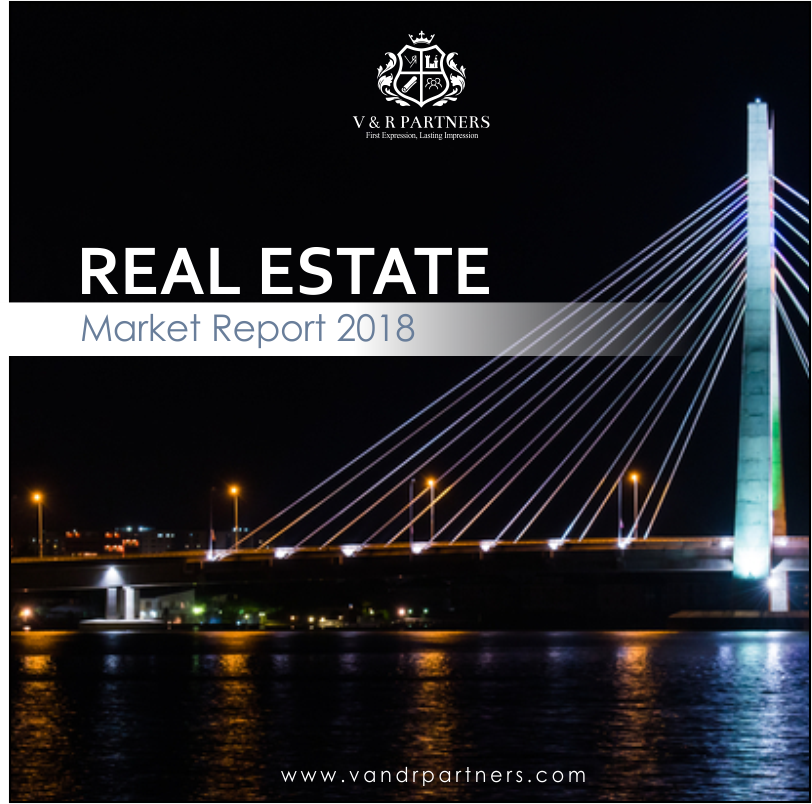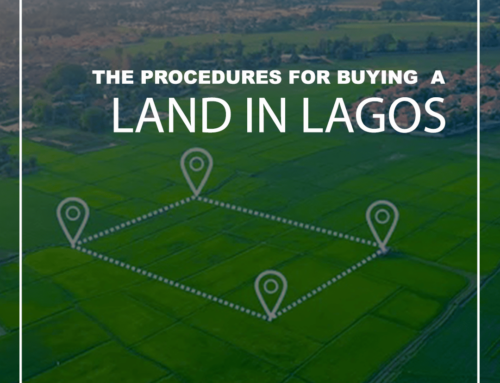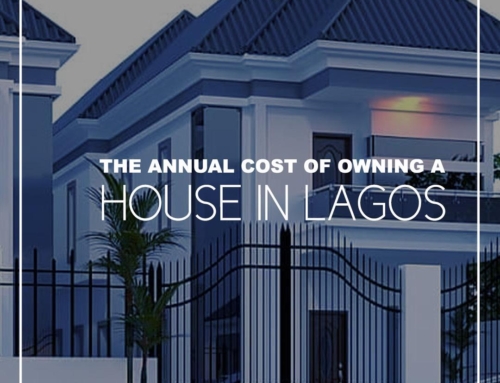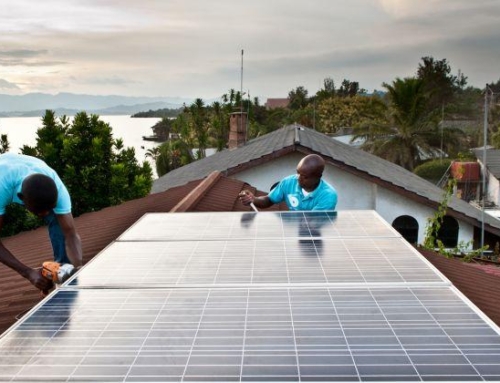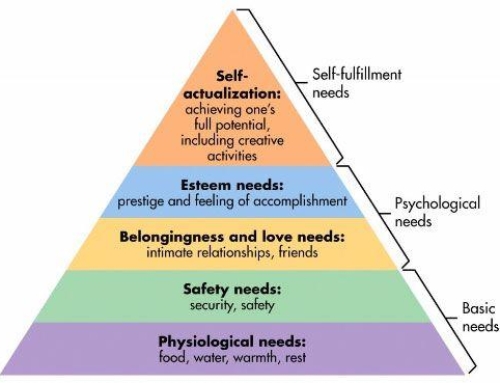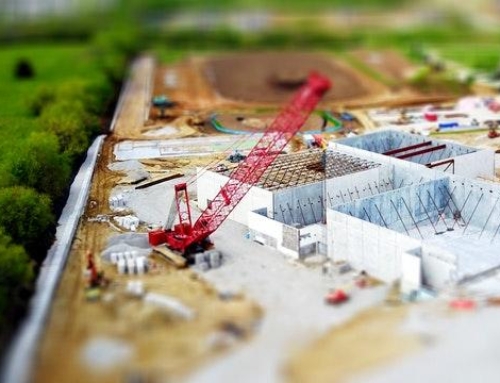ECONOMIC OVERVIEW 2017
The year 2017 saw the Nigerian economy come out of the recession that had plagued the country since the first quarter of 2016. In the second quarter of 2017, the Nigerian Bureau of Statistics recorded a 0.72% increase in the country’s real GDP which was an improvement compared to the negative figures that were previously recorded. This was followed by more positive figures; 1.40% and 1.92% in the third and fourth quarter respectively.
Various experts at home and abroad attributed the economic woes plaguing the country to a myriad of issues, but the most prominent issue agreed on is an over-dependence on oil and the neglect of other sectors of the Nigerian economy.
The real estate industry is the fifth largest contributor to the Nigerian economy and a potential goldmine for investors; but as the Nigerian economy grew, the real estate industry’s contribution to GDP dwindled. Experts have attributed this to the restrictions placed on the availability of foreign exchange that affected the construction industry, which is heavily import based, and the unstable economic climate which has affected the general willingness to invest in the country’s real estate sector. The sector ended 2017 with a -5.92% contribution to the country’s GDP; a significant drop from the -3.1% recorded in the 1st quarter. Although favourable forecasts have been made for 2018, there is a need for comprehensive studies of the Nigerian real estate market, to prevent mistakes that have been made in the past and a recurrence of the yearly drop in GDP contributions.
PROPERTY TRENDS
This report focused on the trends of the Nigerian Real Estate Market in the year 2017 and the first quarter of 2018. Data was sourced majorly from the online real estate market.
Residential
Lagos and Abuja
The Nigerian real estate market has grown since the emergence of online real estate sites in the late 2000s. The market has grown more in states experiencing a high rate of urbanisation. With the country’s 4.3% increase in yearly urbanisation concentrated in only a few states of the country, it is not surprising that the majority of Nigerian states still have a long way to go in terms of real estate activity.
As seen below, our focus has been narrowed down to the most performing areas on the Nigerian real estate scene with major focus placed on selected areas in Lagos and Abuja, including certain areas in Ogun state, Port Harcourt(Rivers state) and Ibadan (Oyo state).
Lagos is the most active state on the Nigerian real estate scene and also maintains the most listings and leads across all major online real estate platforms. As noted, this is largely due to the high level of urbanisation in the state. Ikoyi has the most expensive properties in Lagos for both sales and rent. For sales, the average cost of a 3-5 bedroom house is as high as ₦308,000,000 while the lowest priced properties in Lagos are situated in the Alimosho axis with 3-5 bedroom houses going for ₦28,000,000 on average. Rental prices followed the same trend with apartments and houses in Ikoyi averaging ₦4,000,000 and ₦11,000,000 per annum respectively. Rent prices for 3-5 bedroom houses in Alimosho went for ₦785,000 and 2-3 bedroom apartments went for as low as ₦298,000 per annum.
We highlighted Ibeju-Lekki as an emerging area in Lagos. Aptly referred to by some as the New Lagos, the area will house the self-powered Lekki Free Zone and the new Lekki International Airport. Property here is still relatively affordable compared to neighbouring areas with an average plot of land going for ₦3,500,000. We expect prices to increase exponentially in the future as demand is steadily increasing in the area- reports have shown a 500% increase in land prices in the past 5 years. Investors, companies and private home seeking individuals have developed a keen interest in the area, which will become a self-sustaining ecosystem due to the ongoing and proposed developments in the area.
Average Apartment: Average price of 1-3 bedroom apartments from the 1st of January 2017 till the 18th of February 2018
Average Houses: Average price of 3-5 bedroom houses from the 1st of January 2017 till the 18th of February 2018
Land: Average price of a plot of land with 1 plot of land representing 648m2
Average Apartment: Average price of 1-3 bedroom apartments from the 1st of January 2017 till the 18th of February 2018
Average Houses: Average price of 3-5 bedroom houses from the 1st of January 2017 till the 18th of February 2018
Land: Average price of a plot of land with 1 plot of land representing 648m2
Abuja is the second most active area on the real estate scene but is still way behind in real estate activity compared to Lagos. The city is, however, experiencing major growth in affordable areas such as Lugbe. This is a notable shift as major developments in the past have been in the Central Business District as well as other high brow and upper-middle-class areas. Land in Lugbe can be found for as low as ₦6,450,000 per plot. Land in Gwagwalada was the cheapest of the areas considered in this study going for ₦3,350,000 per plot; this may be due to the fact that the area is situated on the outskirts of the Abuja and developments here are relatively slower than other areas closer to the heart of the city. Maitama had the highest prices listed online with the average cost of a 4-5 bedroom house going for ₦385,750,000, which was the highest of all the areas within and outside Abuja considered in this report. In terms of costliness, Maitama was closely followed by other areas in the Central Business District. Kuje held the cheapest apartments for rent with the average 1-3 bedroom apartment going for ₦306,000 per year. Apart from 1 bedroom apartments, data for Kuje and Gwagwalada was largely unavailable online. Our reports compiled for Asokoro also revealed property sales are more favourable with regard to 4 or more bedroom houses, with a scarcity of apartments for sale.
READ 5 Best Residential Estates in Abuja
Average Apartment: Average price of 1-3 bedroom apartments from the 1st of January 2017 till the 18th of February 2018
Average Houses: Average price of 3-5 bedroom houses from the 1st of January 2017 till the 18th of February 2018
Land: Average price of a plot of land with 1 plot of land representing 648m2
Average Apartment: Average price of 1-3 bedroom apartments from the 1st of January 2017 till the 18th of February 2018
Average Houses: Average price of 3-5 bedroom houses from the 1st of January 2017 till the 18th of February 2018
Land: Average price of a plot of land with 1 plot of land representing 648m2
Other Relevant Areas
Although Rivers, Oyo and Ogun have the most performing areas after Lagos and Abuja, online real estate activities in these areas are still low, old listings remain online for long periods of time and long time lapses between postings for these areas are common. We have narrowed our focus down to certain areas in Port-Harcourt(Rivers State), Ibadan (Oyo State) and these areas in Ogun State- Arepo, Mowe, Ibafo, and Abeokuta.
Arepo and the Mowe-Ibafo axes continue to develop rapidly, due to their proximity to Lagos and also because young professionals are flocking to these areas for their relatively lower prices compared to other areas within Lagos itself. Arepo is about a 15-minute drive to Lagos but can take as much as an hour whenever traffic occurs. Prices in our focus areas for Ogun state did not differ greatly but Arepo had the highest prices across the board with 1-3 bedroom apartments that cost ₦393,000 on average for rent and 3-4 bedroom houses going for ₦39,500,000. Mowe and Abeokuta had the cheapest property for rent placed at ₦246,000 and ₦231,000 respectively. Abeokuta is also an area to watch, as Ogun state authorities claim that 35% of all Nigerian foreign direct investment between 2015 to 2017 was made in the state. The Ogun state government has enhanced infrastructural developments in Abeokuta to create more room for international investments.
Our Port-Harcourt report focused on Old G.R.A, New G.R.A, Peter Ofili Road and Woji Road. Of all areas considered, while Peter Odili Road had the highest priced apartments going for ₦3,190,000 for 1- 3 bedrooms on average.
Our report on Ibadan focused on Bodija, Iyaganku, Orita-Challenge, and Akobo-Ojurin. Akobo-Ojurin had the Highest prices for sale with the average 3-5 bedroom house for ₦39,600,000.00. The lowest prices in our report for sales, in general, were in Orita-Challenge with apartments going for ₦10,500,000 and Houses going for ₦12,000,000. Rent Prices in Ibadan were generally similar with not much difference in each of the areas considered. The highest rental prices based on areas in our report were in Bodija and Oluyole.
Average Apartment: Average price of 1-3 bedroom apartments from the 1st of January 2017 till the 18th of February 2018
Average Houses: Average price of 3-5 bedroom houses from the 1st of January 2017 till the 18th of February 2018
Land: Average price of a plot of land with 1 plot of land representing 648m2
Average Apartment: Average price of 1-3 bedroom apartments from the 1st of January 2017 till the 18th of February 2018
Average Houses: Average price of 3-5 bedroom houses from the 1st of January 2017 till the 18th of February 2018
Land: Average price of a plot of land with 1 plot of land representing 648m2
Average Apartment: Average price of 1-3 bedroom apartments from the 1st of January 2017 till the 18th of February 2018
Average Houses: Average price of 3-5 bedroom houses from the 1st of January 2017 till the 18th of February 2018
Land: Average price of a plot of land with 1 plot of land representing 648m2
Average Apartment: Average price of 1-3 bedroom apartments from the 1st of January 2017 till the 18th of February 2018
Average Houses: Average price of 3-5 bedroom houses from the 1st of January 2017 till the 18th of February 2018
Land: Average price of a plot of land with 1 plot of land representing 648m2
Average Apartment: Average price of 1-3 bedroom apartments from the 1st of January 2017 till the 18th of February 2018
Average Houses: Average price of 3-5 bedroom houses from the 1st of January 2017 till the 18th of February 2018
Land: Average price of a plot of land with 1 plot of land representing 648m2
Average Apartment: Average price of 1-3 bedroom apartments from the 1st of January 2017 till the 18th of February 2018
Average Houses: Average price of 3-5 bedroom houses from the 1st of January 2017 till the 18th of February 2018
Land: Average price of a plot of land with 1 plot of land representing 648m2
Commercial Office Spaces
Lagos and Abuja
The commercial scene in Lagos saw a lot of business owners moving from grade B buildings to grade A property especially in Ikoyi and Victoria Island. This was mainly because of the concessions made on rentals by landlords and owners of these buildings to remain competitive and attract tenants. Some of these concessions came in the form of lower rents and fit-out allowances. Although these prices were still on the high side, these concessions generally contributed to the affordability of the grade-A property.
Ikoyi and Victoria Island topped the list of most expensive properties with a high-level availability of grade. A office spaces. Average rental prices in Ikoyi were ₦90,000 per square meter while property in the Victoria Island axis went for ₦116,000 per square meter. Office space on the mainland is still generally cheap with the average space in Amuwo Odofin going for ₦2,682 per square meter. Ikeja and Lekki had similar prices with office spaces going for ₦41,500 and ₦47,700 per square meter respectively.
Sale: Figures represent average sales price per square meter for commercial office space from the 1st of January 2017 till the 18th of February 2018
Rent: Figures represent average rental price per square meter for commercial office space from the 1st of January 2017 till the 18th of February 2018
In Abuja, office spaces in Maitama proved the most expensive to rent going for as much as ₦79,000 per square meter. Although sales data was insufficient for this report, our analyses of residential and commercial data showed that Maitama is still the most expensive area so far and it is safe to say an availability of online data for commercial sales listings would have followed a similar trend. Wuse proved the most expensive place in Abuja to buy commercial office spaces with property going for ₦630,000 per square meter on average.
Sale: Figures represent average sales price per square meter for commercial office space from the 1st of January 2017 till the 18th of February 2018
Rent: Figures represent average rental price per square meter for commercial office space from the 1st of January 2017 till the 18th of February 2018
READ 500 housing units to be built in Lagos and Abuja.
Other Relevant Areas
Office property online for Port Harcourt, Ibadan and Ogun were grouped together for this segment of the report with Portharcourt rental prices at the highest for rent at ₦19,500 per square meter. Property in Ibadan proved the most expensive for sale at an average of ₦90,000 per plot while Property in Ogun state was the lowest for sales at ₦24,000.
Sale: Figures represent average sales price per square meter for commercial office space from the 1st of January 2017 till the 18th of February 2018
Rent: Figures represent average rental price per square meter for commercial office space from the 1st of January 2017 till the 18th of February 2018
Rental Yield
Lagos and Abuja
Percentage Rental Yield for 4 bedroom houses in Lagos was the most profitable for Alimosho and Ogba house owners owing to the gap between cost and rental prices. The yield was 10.85% and 11.68% respectively for these areas closely followed by Lekki, while the lowest rental yield for houses was in Ikorodu with 1.26%. Rental yield for apartments was the lowest in Amuwo-Odofin (1.40%), Ojodu(1.73%), Ojo (1.42%) and Ikeja( 1.80%). Percentage Rental yield was the highest in Lekki for houses with 6.27% and apartments at 5.84%. From the data drawn in this report, Lekki is the most profitable place to lease out property due to its affordability as a relatively high brow area which makes it attractive to both upper-middle and high income earning classes This affordability has thus increased demand.
For commercial rental yield on the Lagos mainland, Abule-egba (Agege) and Oshodi had the highest percentages with 43% and 19% respectively. On the Island, the highest percentage yield was in Lekki and Victoria Island with 11.03% and 11.15% respectively.
Rental yield in Abuja is generally higher than Lagos, perhaps proving a more profitable place to lease out residential property. Garki and Maitama had the highest rental yield for apartments with figures placed at 16.38% and 15.15% respectively. Wuse was the highest for houses with a percentage of 4.10%. For commercial rental yield, Garki had the highest yield at 10% while Wuse was the lowest at 4.71%.
WHAT TO KNOW ABOUT THE NEW LAND USE CHARGE
(It should be noted that the Lagos State House of Assembly on the 19th of March set up a committee to further review the provisions of the Land Use Charge Law due to the numerous complaints it received and as such, the Law is still subject to further changes.)
The Land Use Charge bill which was signed into law on the 8th of February, 2018, has been met with mostly negative reviews. Most of the rates have been increased as shown in the table below and those opposed to the Law have stated that the new rates are insensitive to the economic hardships Lagos residents (and the country at large) currently face.
As a result of public outcry, on the 15th of March, 2018, the Lagos State Government announced additional discount rates which are listed in purple below and also scrapped penalties for late payment in 2018. Those who had already paid the new charges will enjoy tax credits.
The Land Use Charge rate is calculated based on the market value of the property. According to the law, this refers to the value of the land and any building developments on the land; this value is calculated by special valuers to be appointed by the commissioner of finance and is to be reviewed every 5 years.
LAND USE CHARGE RATES
**General applicable relief to all rates- 40%
**Additional relief for commercial property- 50%
**Additional relief rate for residential Property Occupied by Owner and Third Party – 25%
**Additional relief rate for Property Used for Industrial and Manufacturing Purposes-25%
**Additional relief rate for owner-occupied property-15%
| Classification | Old rate | New rate |
| Pensioner’s property | 0.000% | Exempted |
| Lagos State Government properties | N/A | Exempted |
| Owner-occupied residential property | 0.150% | 0.076% per annum of market value |
| Vacant properties and open empty land | 0.000% | 0.076% per annum of market value |
| Industrial premises of manufacturing concerns | 0.500% | 0.256% per annum of market value |
| Residential property occupied by owner and 3rd party | Unclear | 0.256% per annum of market value |
| Residential property not occupied by owner | 0.650% | 0.760% per annum of market value |
| Commercial property (used for business purposes) | 1.750% | 0.760% per annum of market value |
Depreciation rates
| Year of Building | Depreciation rate |
| 0-5 | 1% |
| 6-10 | 0.9% |
| 11-15 | 0.8% |
| 16-20 | 0.7% |
| 21-25 | 0.6% |
| 26-30 | 0.5% |
| 31-35 | 0.4% |
| 36-40 | 0.3% |
| 41-45 | 0.2% |
| 46-50 | 0.1% |
How to calculate the new land use charge?
Formula:
₦100m x (1- 40%) x (1- [5 x 1%]) x 0.076% x(1- 15%)
Our formula above represents the formula for calculating the new Land Use Charge for an owner-occupied property with a ₦100m market value which has been in use for 5 years. The value 40% is applicable to relief for all property.
The value 5 (representing the number of years in use) multiplied by 1% which is the prescribed depreciation rate in the law. From the table above, owner-occupied residential properties are to pay a land use charge rate of 0.076 %.
No other relief rates apply in this scenario so our calculation breakdown becomes:
₦100m x (0.6 x 0.95 x 0.00076 x 0.85)=₦36,822
Properties owned by pensioners (who retired from a pensionable office in Lagos State), Federal and State government property and property owned by religious and charity organisations used exclusively for such purposes are exempted from Land Use Charges. Disabled persons, aged persons, owners/occupiers of old properties and those who pay their Land Use Charge within 15 days of assessment are also entitled to reliefs under the Act
Effect on Property Rentals
Landlords and property owners are very likely to increase rent prices to reflect the new charges by including the same in rental agreements. Some experts are of the opinion that this may not be the case as rent rate increments are based on the eagerness of buyers to pay such rates. It should also be noted that these rates favour owner-occupied residential property so a likelihood exists that this could increase the desirability of owned property as opposed to rentals for those who can afford to move.
Penalties
Failure to comply with the provisions of the Land Use Charge law attracts a fine of ₦250,000 or 3 months imprisonment or both.The Land Use Charge law also empowers the State to file and maintain a civil action against the owner or occupier of property (or their agent) in the event of default.
As noted above, The Government also scrapped penalties for late payment during 2018 (Penalties were formerly included for payment default after 135 days of notification).
EMERGING AREAS
For our emerging areas in this issue, we focused on Lugbe, Ikorodu, Arepo and the Lekki Free Zone in Ibeju Lekki as these are areas that have experienced significant infrastructural development in recent times and also have major potential for expansion in the future.
READ Top 5 Tourist Sites in Ogun State
LUGBE
Lugbe is a suburban area located in the Municipal Area Council of Abuja and is divided into the South, North, Central, West, and East.
Lugbe is about a 20-minute drive from the Central Business District and a 22minute drive from the Nnamdi Azikiwe International Airport. The city’s development has been largely due to its proximity to the Central Business District and affordability compared to property in the Central area.
The National Space Development and Research Agency and the Voice of Nigeria Transmission station are two prominent landmarks in the area.
IKORODU
Recently acknowledged for its developments by the Lagos State Commissioner for Commerce, the area should definitely be noted as one to watch in the coming years. Ikorodu achieved spatial growth of 118% between 1990 to 2011 and increased to 1171.6% by 2015. The area has an estimated population of 2 million and 40% of its residents work in the metropolitan areas of Lagos.
A 20-year development master plan was unveiled for the area by the Lagos State Government in 2016 (to be completed in 2036) which includes plans for the 4th Mainland Bridge which will run from Ajah to Ikorodu to Isawo and then link from Ojodu, Ikeja back to the Lagos-Ibadan expressway. The current administration plans to harness the area’s yet-to-be-developed green fields and waterways to enhance investments in the state.
AREPO
Arepo is a budding suburb on the outskirts of Ogun state which is an approximate 15-minute drive to Lagos. Its name can be translated from the Yoruba language to mean “We have seen oil” due to the oil pipelines situated in the area. Notable landmarks include the Punch Place and the area is also a 10-minute drive from Hi-Impact Planet which is arguably the largest modern amusement park in the country. Arepo is a choice area for young professionals and families that need relatively affordable housing, but one of the main downsides to this area is the roads which are still mostly untarred and cause flooding during the rainy season. As a result, it is safe to say that the area is not pedestrian friendly.
LEKKI FREE ZONE (IBEJU LEKKI)
The Lekki Free Zone is a project by the Lekki Free Zone Development Company which is a joint venture partnership between China-Africa Lekki Investment Ltd (CALIL), The Lagos State Government and Lekki Worldwide Investments Limited
CALIL is a consortium of Chinese companies and owns 60% of the LFZDC making them the majority shareholder while LWIL owns 40%.
The LFZ is about 10 km away from the proposed Lekki International Airport and about 50 kilometers away from the teeming heart of Lagos as well as the Apapa Port. The project is aimed at developing a free zone which will be at par with international standards with a secondary goal of strengthening the relationship between Nigeria and China. The project also aims to make the city eco-friendly, which will definitely be a breath of fresh air compared to certain areas of Lagos which are rife with pollution.
Infrastructurally, the blueprint of this project is very impressive, with independently generated uninterrupted power supply, the Lekki Free Zone will be the first area in the country to run on 24 hours of uninterrupted electricity. Other infrastructural advantages include: purified water (a 60,000 gallon a day capacity), a good network of roads, a customs processing centre and a container terminal to facilitate and enhance the fast clearing of goods at the ports, an exhibition and trade centre, and also one-stop service to fast-track otherwise lengthy business registrations as well as other related documentation processes.
Quarterly Analysis for Emerging Areas (2017)
Average prices for houses in Ikorodu started at their lowest for 2017 (₦16,700,000) in the first quarter but saw a steady increase through to the third quarter of 2017 and remained steady through to the 4th quarter of the year(₦40,000,000).
In Ibeju Lekki, the peak for prices in 2017 was in the first quarter(₦52,500,000). Prices dropped in the second quarter and remained steady for the rest of the year (₦31,000,000 in the 3rd and 4th quarter)..
Houses in Arepo remained stayed the same for the 1st and 2nd quarter(₦40,000,000)and then spiked in the 3rd quarter of the year (₦61,500,000). The last quarter saw prices return to normal (₦45,300,000).
Houses in Lugbe started off at an average of ₦60,000,000 at the beginning of the year but then saw a steady drop for the rest of the year ending at ₦28,000,000 in the 4th quarter.
Land prices in these areas remained steady for the whole of 2017 with not too significant changes as seen in the graph below.
ACTIVITY HIGHLIGHTS
The Tolet Home and Property Festival was organised to connect real estate market players to clients in real time. 40 home and property brands were present to advertise, sell and meet with potential customers and clients. Both the mainland and island editions of the festival had about 1,500 people in attendance and various prizes were given out; including plots of land and electronics.
The maiden edition of the Tolet Speaker Series titled ‘Adapting to the Digital Market’ was held; with Tayo Odunsi (CEO Northcourt) and Ayilara Olawale (CEO LandWey) as speakers. The event which was strictly by invitation had about 50 guests in attendance and was held at the Oriental Hotel, Lagos. The goal of the event was to find ways to address the digital challenges currently faced by key players in real estate. The series is to be held bi-monthly, with the next edition scheduled for the end of April.
The Tolet Mobile App was launched to help clients and agents access the site seamlessly on the go as about 85% of our site visits are via mobile. This is one of the many innovations gearing up to our rebranding as PropertyPro.
PERFORMANCE HIGHLIGHTS
Tolet.com.ng upgrades site and rebrands as Property Pro. For more information on the quarterly real estate market report, kindly log on to https://www.propertypro.ng/report/. Join the conversation with other PropertyProreaders by commenting below.
REFERENCES
Lagos State Government. (2018). Ikorodu Economic Summit
Erikume, K. (2018). How controversial is the new Land Use Charge Law in Lagos?
www.pwc.com/ng/en/assets/pdf/lagos-land-use-charge-controversy%202018.pdf
Sahara Reporters. (2018). Lagos State Releases Details Of Reduced Land Use Charge
saharareporters.com/2018/03/15/breaking-lagos-state-releases-details-reduced-land-use-charge
National Bureau of Statistics. (2018). Nigerian Gross Domestic Product Report (Q4 and Full Year 2017)
nigerianstat.gov.ng/elibrary?queries[search]=gdp%20q4
Broll. Nigeria Office Market Viewpoint: Q4 2017.
www.broll.com.ng/publications/
Estate Intel. (2018). The Lagos Office Market in 5 charts
estateintel.com/the-2017-lagos-office-market-in-5-charts/
Lekki Free Zone Official Website
lfzdc.org/
